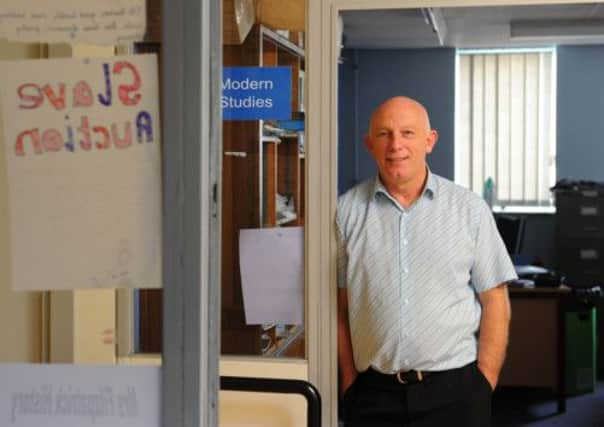Hugh Reilly: Teachers’ MOTs may not go beyond A to B


As a consequence of the bonded labour scheme that is euphemistically referred to as married with four children, my vehicle purchases always took place at car auction venues. Twee TV programmes such as Homes Under The Hammer have given a veneer of respectability to public sell-offs of unwanted goods. Sadly, the smiling faces of successful house bidders is in stark contrast to the grim visages of bottom-end car buyers who fear they have just purchased someone else’s malfunctioning jalopy. Certainly, catching sight of the hitherto owner punching the air and high-fiving his missus causes something of a sinking feeling in the heart of the new registered keeper.
Most of my less than astute vehicular acquisitions required an imminent MOT. On arriving at the MOT station, I popped the bonnet to allow a kindly mechanic to take a sharp intake of breath before he said: “I can pass this banger but it’ll cost ye.” Half an hour later, with an MOT certificate in my hand and a three-figure sum subtracted from my bank statement, I was ready to hit the highway.
Advertisement
Hide AdAdvertisement
Hide AdThree years ago, the Scottish Government requested the General Teaching Council Scotland (GTCS) to bring forward proposals on a re-accreditation scheme for teachers. A pilot scheme was arranged and, as with every faddish innovation, was immediately declared a stunning success. However, rather unfortunately, an anonymous school manager who participated in the trial has coughed up the info that it is a “soft approach”. Education’s deep throat claims that the Professional Update accreditation programme does not offer enough opportunity “to prompt or challenge” staff, who might choose training courses that do not suit their real needs.
Under this MOT for teachers, due to be rolled out next year by the GTCS, dominies are expected to have their professional development held to account every five years. A line manager will interview a chalkie and discuss the impact that any out-of-school courses may have had in the classroom.
From the results of an evaluation of the pilot scheme, a minority of school managers felt that the emphasis was too great on supporting staff instead of encouraging teachers to seek advanced skills that would benefit learners. As usual, the traditional excuse of “workload issue” has been wheeled out by Sirs in an effort to sabotage the initiative. Unusually, however, school managers have caught a hudgie on the bandwagon, demanding to know the extent of their review caseload.
The impending regime spookily resembles the current compulsory Continuing Professional Development (CPD) programme. At a time when budgets are stretched, it’s incredible that we are establishing a five-yearly “crit” for each of the nation’s 83,000 registered teachers. To be fair, a fine tuning of CPD is long overdue. Glasgow City Council, God bless them, paid my course fees of several hundred pounds when I attained my Teaching English as a Foreign Language certificate. Despite being in possession of this award and already teaching in one of the four receiving schools for children of asylum-seekers, I failed to secure one of the permanent posts to teach immigrant youngsters. Months later, I was exiled to the east end of the city. Teaching largely indigenous teenagers meant I had no opportunity to use the skills my employer had funded. Somewhat downcast, I found little solace in the fact that my redundant TEFL certificate enjoyed slightly more integrity than Johann Lamont’s Debater of the Year award.
Speaking of deadbeats, the GTCS, that august body of honourable men and women, must be seriously hacked off that so many invitees declined to participate in their evaluation survey; turnout was on a par with vegetarians at a cannibal tribe’s all-you-can-eat buffet. Of 247 teachers invited to take part, only 47 did so and, worse, a mere 14 out of a possible 98 school leaders contributed to the findings.
But somewhere in education’s bureaucracy a box has been ticked, and the public are further reassured that all is well in our classrooms. While the GTCS believe the Professional Update accreditation programme is the vehicle of choice on the journey to excellence, I’d seriously question its roadworthiness.